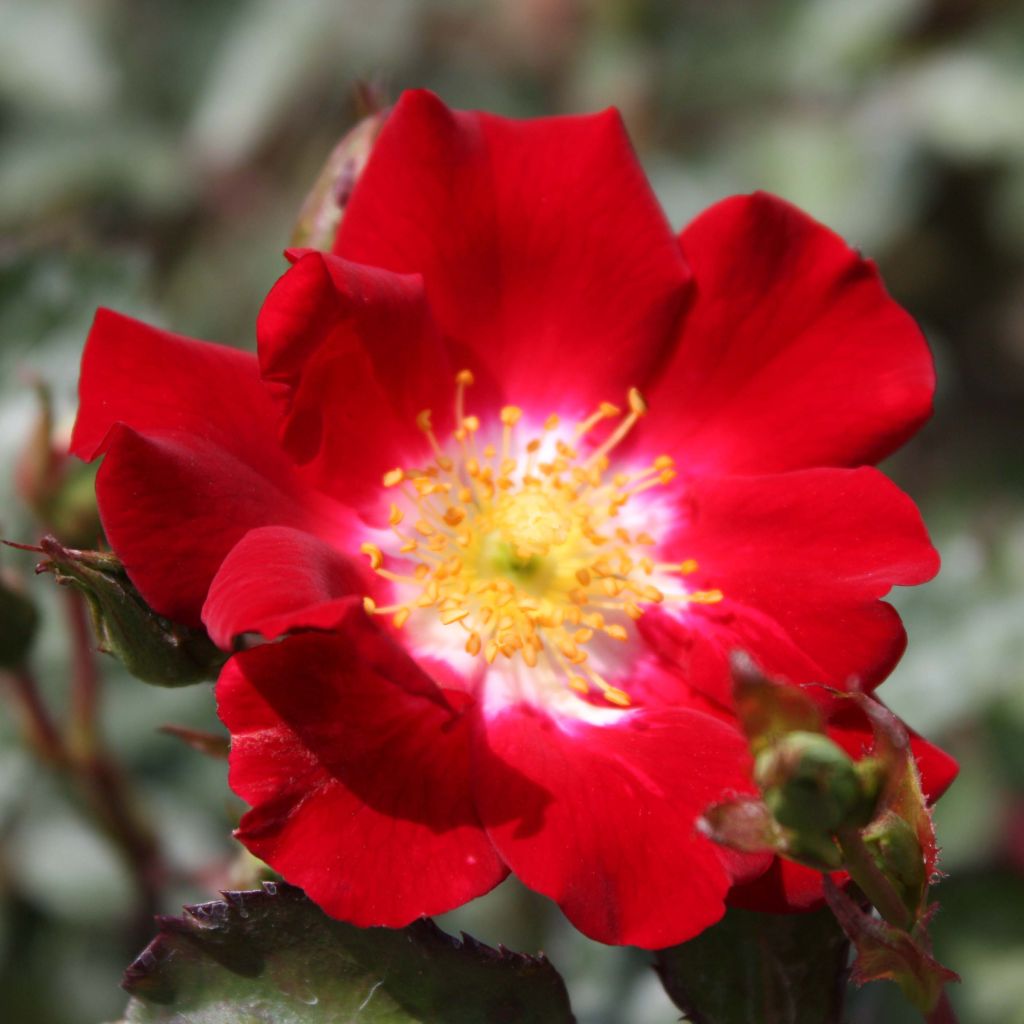

Rosa 'Rouge Meillandécor' - Shrub Rose
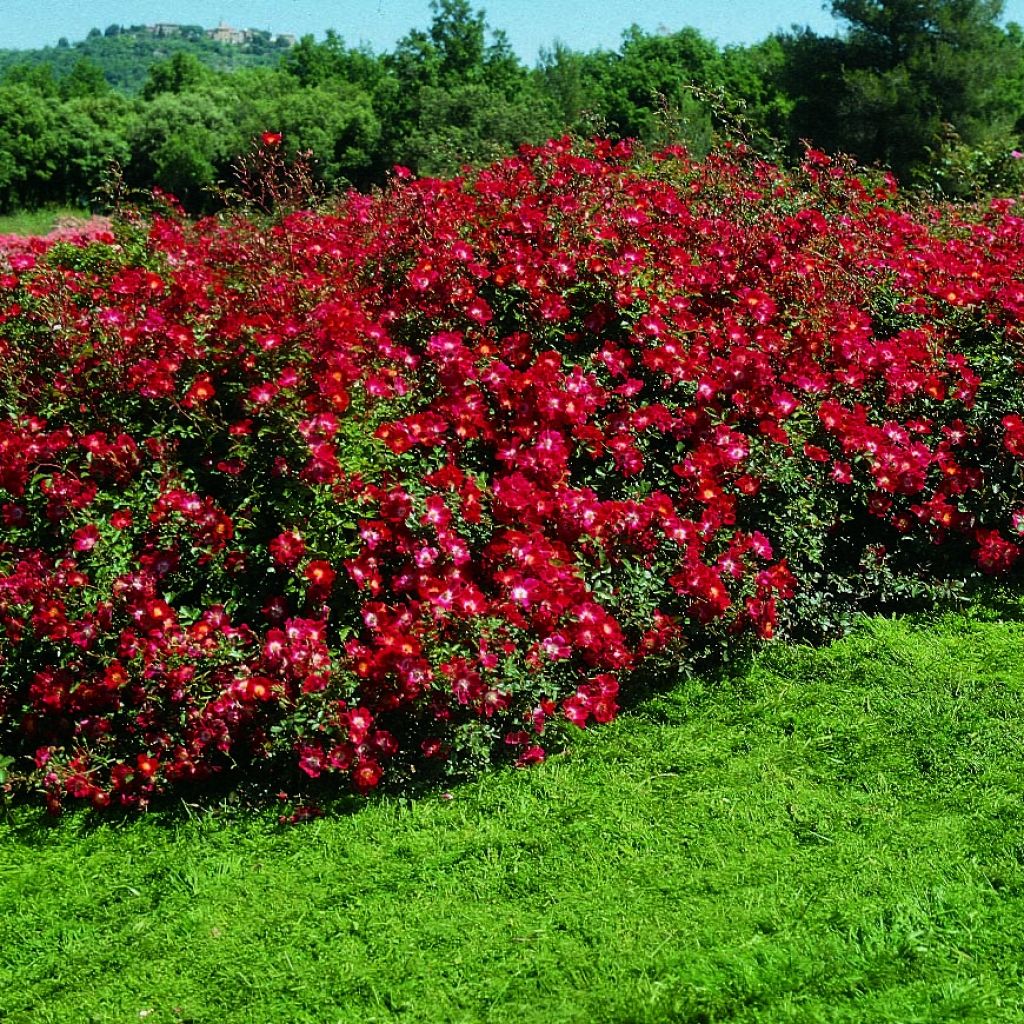

Rosa 'Rouge Meillandécor' - Shrub Rose
View more pictures
Hide images
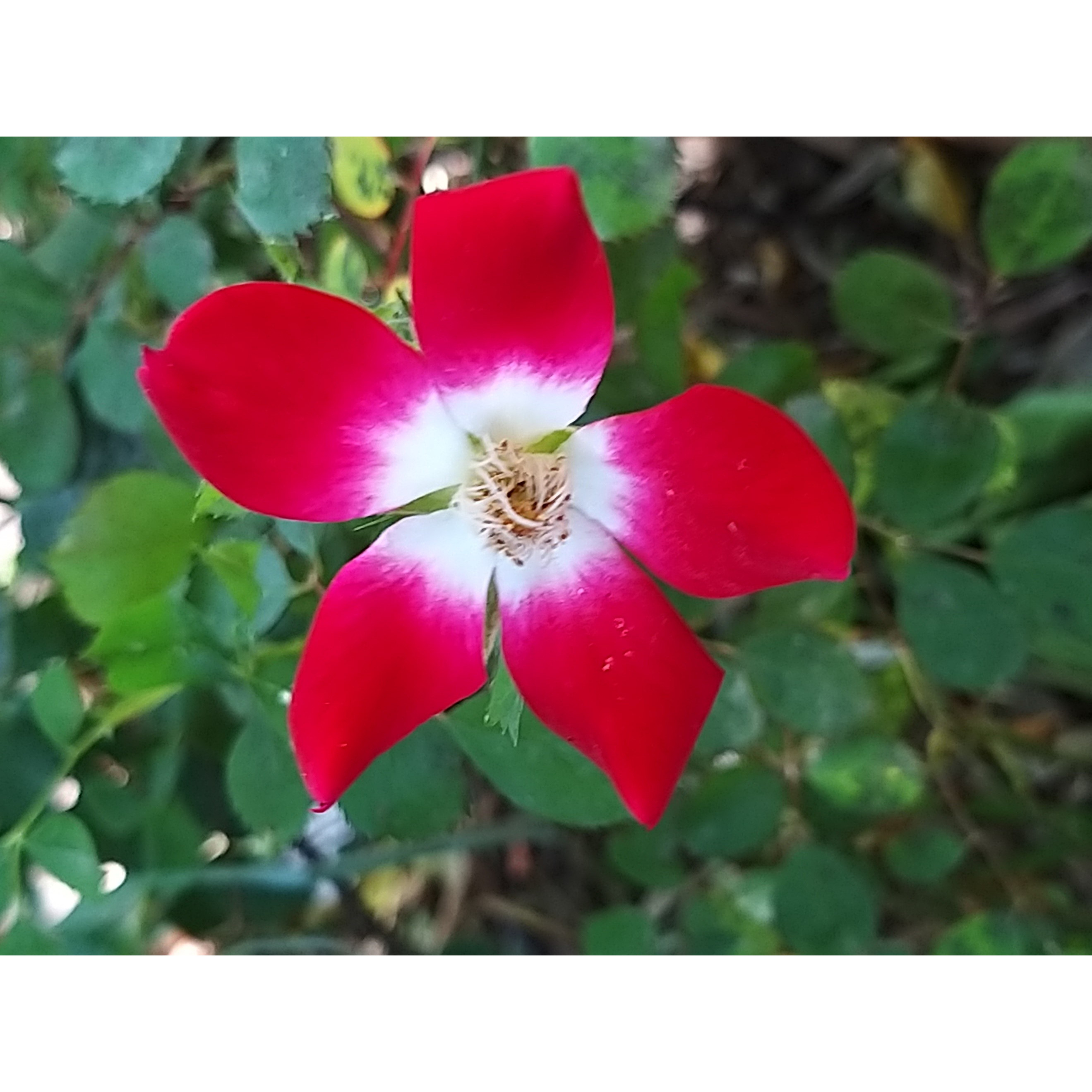
Thierry P.

May flowering - image 5
Thierry P. • 84 FR
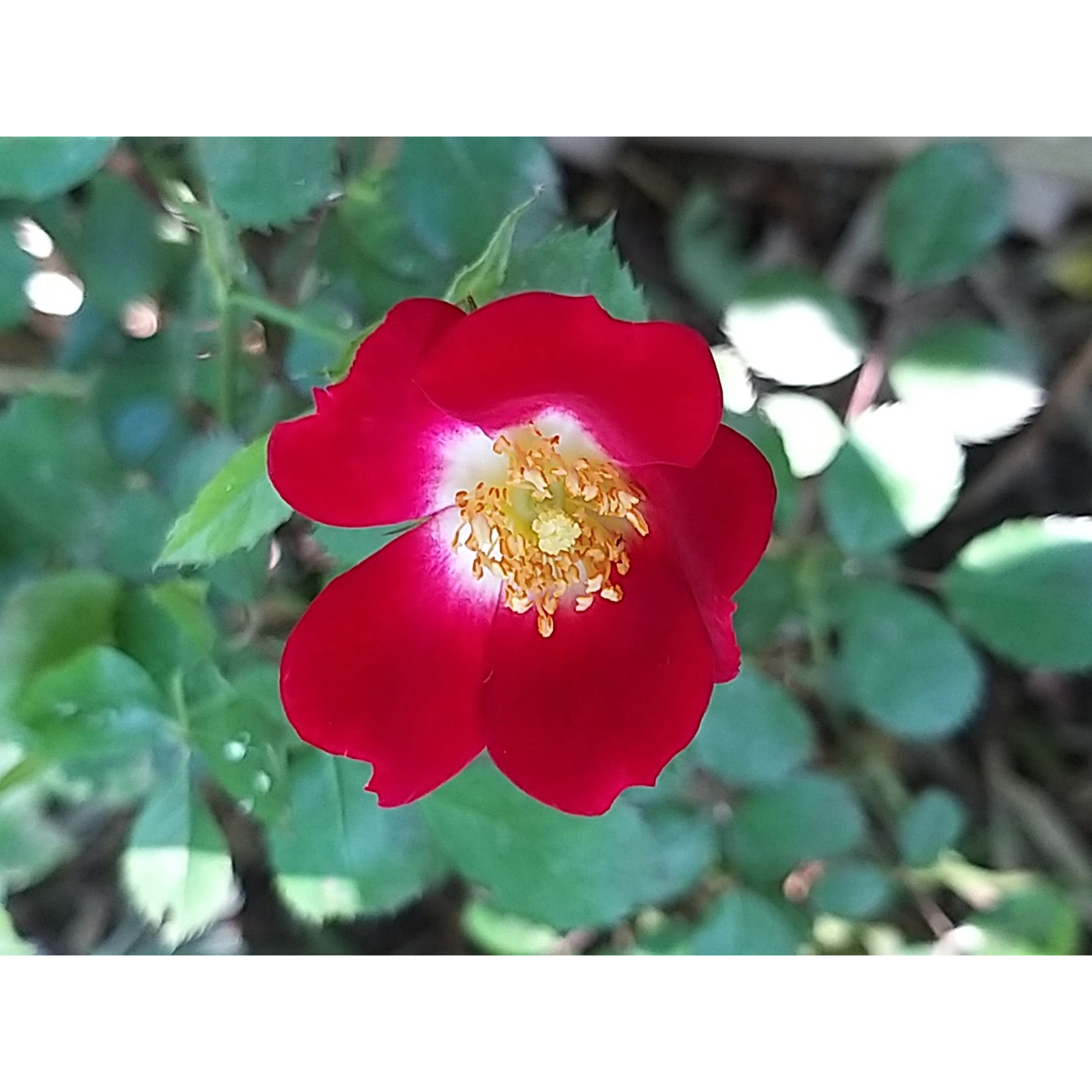
Thierry P.

May flowering - image 4
Thierry P. • 84 FR
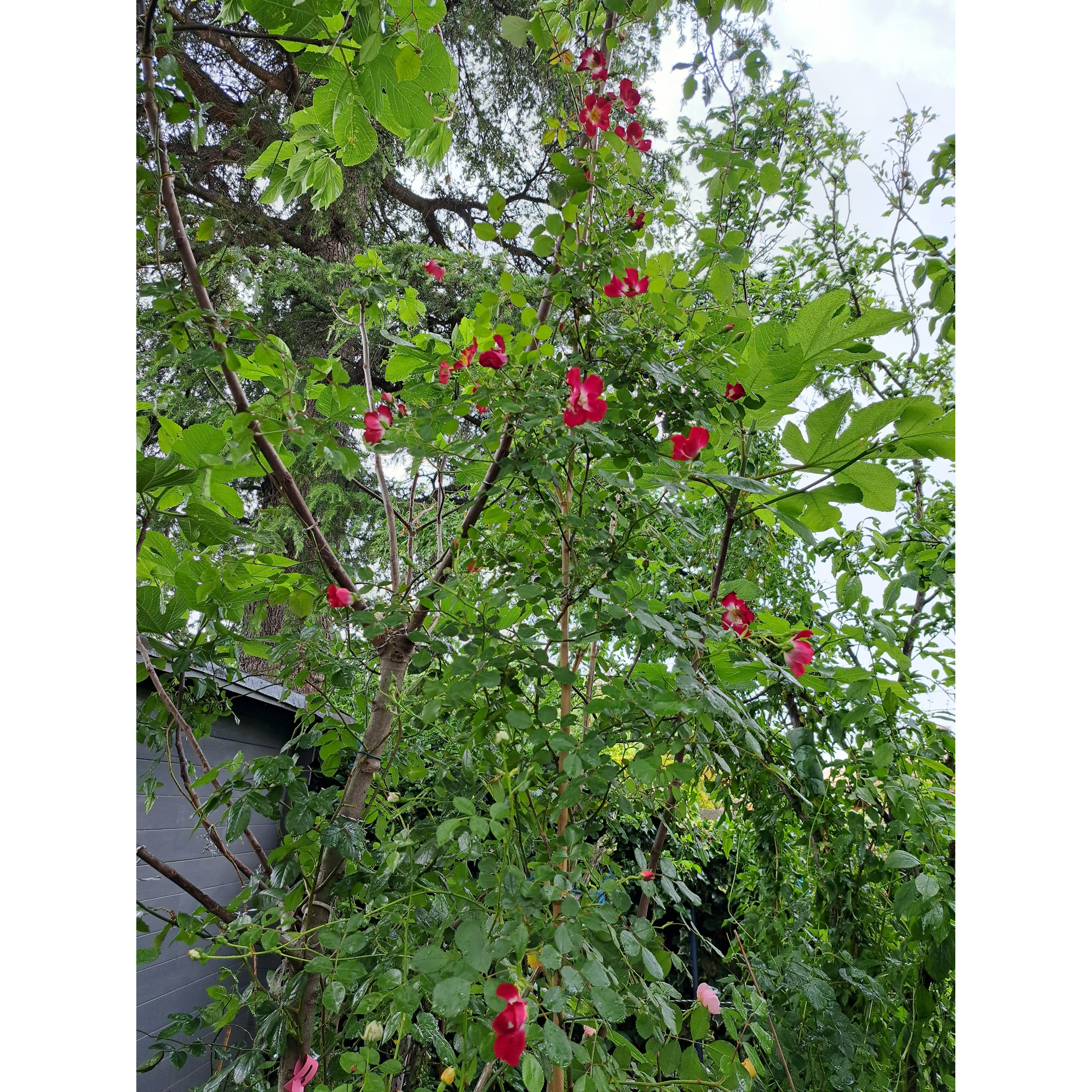
Thierry P.

May flowering - image 25 - In the rain, next to my fig tree.
Thierry P. • 84 FR
Rosa 'Rouge Meillandécor' - Shrub Rose
Rosa Rouge Meillandécor® 'Meineble'
Meineble
Lovely little young plant. I've planted it in the ground before it rains so that it can benefit from it. I hope it thrives. Analyse de la traduction : - "Beau petit plant" a été traduit par "Lovely little young plant", ce qui conserve l'idée de beauté et de petite taille du plant. "Young plant" est utilisé pour désigner un jeune plant en anglais britannique. - "Je l’ai mis en terre" a été traduit par "I've planted it in the ground", ce qui exprime l'action de mettre le plant en terre. - "avant qu’il pleuve" a été traduit par "before it rains", ce qui indique le moment précédant la pluie. - "pour qu’il en profite" a été traduit par "so that it can benefit from it", ce qui exprime l'idée que le plant profitera de la pluie. - "J’espère qu’il prendra" a été traduit par "I hope it thrives", ce qui exprime le souhait que le plant se développe correctement. La traduction respecte le sens et le contexte du texte original et utilise des termes appropriés en anglais britannique. Aucune faute potentielle n'a été détectée dans la traduction.
M.Martine, 28/03/2023
Special offer!
Receive a €20 voucher for any order over €90 (excluding delivery costs, credit notes, and plastic-free options)!
1- Add your favorite plants to your cart.
2- Once you have reached €90, confirm your order (you can even choose the delivery date!).
3- As soon as your order is shipped, you will receive an email containing your voucher code, valid for 3 months (90 days).
Your voucher is unique and can only be used once, for any order with a minimum value of €20, excluding delivery costs.
Can be combined with other current offers, non-divisible and non-refundable.
Home or relay delivery (depending on size and destination)
Schedule delivery date,
and select date in basket
This plant carries a 6 months recovery warranty
More information
We guarantee the quality of our plants for a full growing cycle, and will replace at our expense any plant that fails to recover under normal climatic and planting conditions.
Description
The 'Meillandecor' Red Rose 'Meidiland' is a compact and spreading landscape rose that forms an authentic ground cover throughout the season with an abundant and bright red flowering punctuated with white. Its small and shiny single flowers display a clear centre adorned with a beautiful crown of golden-yellow stamens. They are gathered in long clusters covering glossy and healthy foliage for 5 to 6 months. A carefree rose, ideal for planting the decor of a small garden, in large borders or flower beds, and on the terrace or balcony.
The landscape roses of the 'Meillandecor' series quickly cover the ground thanks to their spreading habit while offering abundant and regular flowering throughout the beautiful season. The 'Meillandecor' Red Rose or Red Meidiland flowers are gathered in large terminal clusters derived from the polyantha rose, an old hybrid resulting from Rosa multiflora and Rosa chinensis. 'Rouge Meillandecor' is a plant with exceptional natural resistance to diseases and parasites, with an almost permanent decorative effect and dense vegetation. The compact and spreading habit will reach approximately 40 cm (16in) in height in a few years, with a spread of 1.5 to 1.7 metres (5 to 6 feet). The 5- 7 cm (2- 3in) single flowers are formed by 4- 7 undulate petals arranged in relatively closed cups. Their colour is light and bright red, with a white base. They are fragrance-free. This variety develops a soft green and shiny foliage.
Adopting this 'Meillandecor' Red Rose also means adopting a slightly ecological approach, in which phytosanitary treatments are banned while benefiting from a plant with attractive aesthetics. This rose adapts to all soils that are not too dry and all climates, allowing it to be planted anywhere, even at medium attitude. It can, for example, be planted en masse on a large slope in the company of grey foliage plants (Stachys lanata, Artemisia nana, Cerastium tomentosum...). It works wonders when planted along a path, in front of a large flower bed, or on either side of the garden entrance. It also has its place on a sunny terrace, accompanying summer annuals (Lobelia, Nemesia, foliage ipomoeas...).
Report an error about the product description
Rosa 'Rouge Meillandécor' - Shrub Rose in pictures
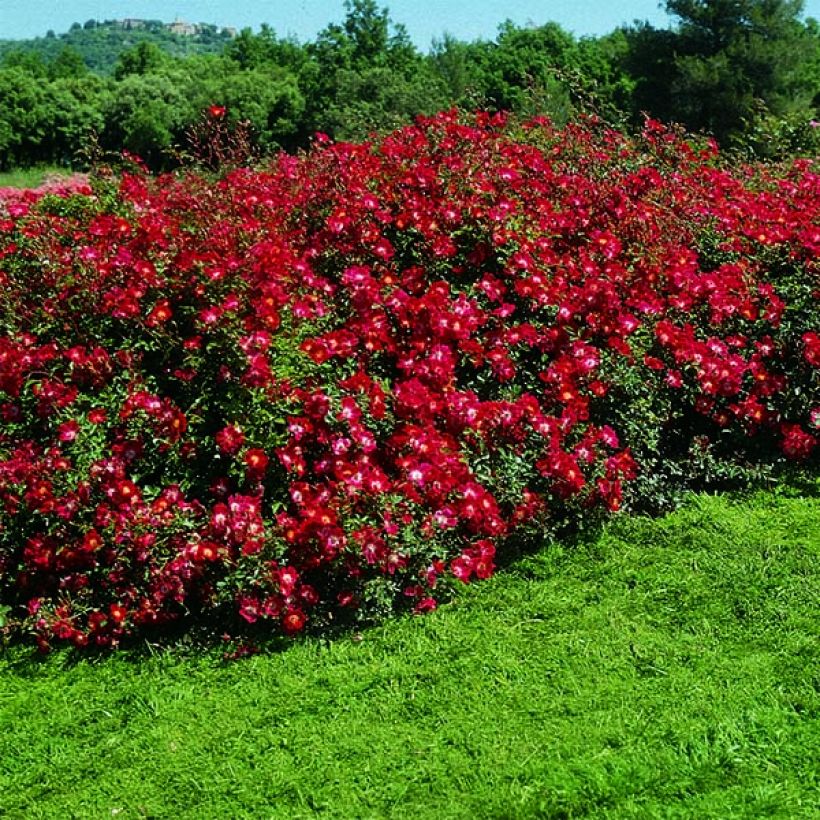

Plant habit
Flowering
Foliage
Botanical data
Rosa
Rouge Meillandécor® 'Meineble'
Rosaceae
Meineble
Cultivar or hybrid
Rosa canina Laxa (2L/3L pot)
Planting and care
Ground-cover roses prefer a sunny location (at least 4 hours of sun per day) but are protected from the scorching midday sun and strong winds. They appreciate loose, permeable soils rich in humus. They prefer slightly acidic soil but adapt to any garden if it is well-worked and sufficiently rich. To plant your rose in a pot, work the soil to a depth of 25 cm (10in), crumble the soil well and place a background amendment such as blood, fish and bone at the bottom of the planting hole. Position your plant, remove it from its pot, and cover the top of the root ball with 3 cm (1in) of soil. Fill in the hole and water generously to remove any air pockets. In dry weather, it is necessary to water regularly for a few weeks to facilitate root growth. Also, remember to provide your rose with a special rose fertiliser that stimulates plant flowering.
Roses often have stains or may look unsightly towards the end of summer. However, this is not a problem for their development. These stains are natural and do not harm the rose.
Planting period
Intended location
Care
-
, onOrder confirmed
Reply from on Promesse de fleurs
Haven't found what you were looking for?
Hardiness is the lowest winter temperature a plant can endure without suffering serious damage or even dying. However, hardiness is affected by location (a sheltered area, such as a patio), protection (winter cover) and soil type (hardiness is improved by well-drained soil).

Photo Sharing Terms & Conditions
In order to encourage gardeners to interact and share their experiences, Promesse de fleurs offers various media enabling content to be uploaded onto its Site - in particular via the ‘Photo sharing’ module.
The User agrees to refrain from:
- Posting any content that is illegal, prejudicial, insulting, racist, inciteful to hatred, revisionist, contrary to public decency, that infringes on privacy or on the privacy rights of third parties, in particular the publicity rights of persons and goods, intellectual property rights, or the right to privacy.
- Submitting content on behalf of a third party;
- Impersonate the identity of a third party and/or publish any personal information about a third party;
In general, the User undertakes to refrain from any unethical behaviour.
All Content (in particular text, comments, files, images, photos, videos, creative works, etc.), which may be subject to property or intellectual property rights, image or other private rights, shall remain the property of the User, subject to the limited rights granted by the terms of the licence granted by Promesse de fleurs as stated below. Users are at liberty to publish or not to publish such Content on the Site, notably via the ‘Photo Sharing’ facility, and accept that this Content shall be made public and freely accessible, notably on the Internet.
Users further acknowledge, undertake to have ,and guarantee that they hold all necessary rights and permissions to publish such material on the Site, in particular with regard to the legislation in force pertaining to any privacy, property, intellectual property, image, or contractual rights, or rights of any other nature. By publishing such Content on the Site, Users acknowledge accepting full liability as publishers of the Content within the meaning of the law, and grant Promesse de fleurs, free of charge, an inclusive, worldwide licence for the said Content for the entire duration of its publication, including all reproduction, representation, up/downloading, displaying, performing, transmission, and storage rights.
Users also grant permission for their name to be linked to the Content and accept that this link may not always be made available.
By engaging in posting material, Users consent to their Content becoming automatically accessible on the Internet, in particular on other sites and/or blogs and/or web pages of the Promesse de fleurs site, including in particular social pages and the Promesse de fleurs catalogue.
Users may secure the removal of entrusted content free of charge by issuing a simple request via our contact form.
The flowering period indicated on our website applies to countries and regions located in USDA zone 8 (France, the United Kingdom, Ireland, the Netherlands, etc.)
It will vary according to where you live:
- In zones 9 to 10 (Italy, Spain, Greece, etc.), flowering will occur about 2 to 4 weeks earlier.
- In zones 6 to 7 (Germany, Poland, Slovenia, and lower mountainous regions), flowering will be delayed by 2 to 3 weeks.
- In zone 5 (Central Europe, Scandinavia), blooming will be delayed by 3 to 5 weeks.
In temperate climates, pruning of spring-flowering shrubs (forsythia, spireas, etc.) should be done just after flowering.
Pruning of summer-flowering shrubs (Indian Lilac, Perovskia, etc.) can be done in winter or spring.
In cold regions as well as with frost-sensitive plants, avoid pruning too early when severe frosts may still occur.
The planting period indicated on our website applies to countries and regions located in USDA zone 8 (France, United Kingdom, Ireland, Netherlands).
It will vary according to where you live:
- In Mediterranean zones (Marseille, Madrid, Milan, etc.), autumn and winter are the best planting periods.
- In continental zones (Strasbourg, Munich, Vienna, etc.), delay planting by 2 to 3 weeks in spring and bring it forward by 2 to 4 weeks in autumn.
- In mountainous regions (the Alps, Pyrenees, Carpathians, etc.), it is best to plant in late spring (May-June) or late summer (August-September).
The harvesting period indicated on our website applies to countries and regions in USDA zone 8 (France, England, Ireland, the Netherlands).
In colder areas (Scandinavia, Poland, Austria...) fruit and vegetable harvests are likely to be delayed by 3-4 weeks.
In warmer areas (Italy, Spain, Greece, etc.), harvesting will probably take place earlier, depending on weather conditions.
The sowing periods indicated on our website apply to countries and regions within USDA Zone 8 (France, UK, Ireland, Netherlands).
In colder areas (Scandinavia, Poland, Austria...), delay any outdoor sowing by 3-4 weeks, or sow under glass.
In warmer climes (Italy, Spain, Greece, etc.), bring outdoor sowing forward by a few weeks.





























